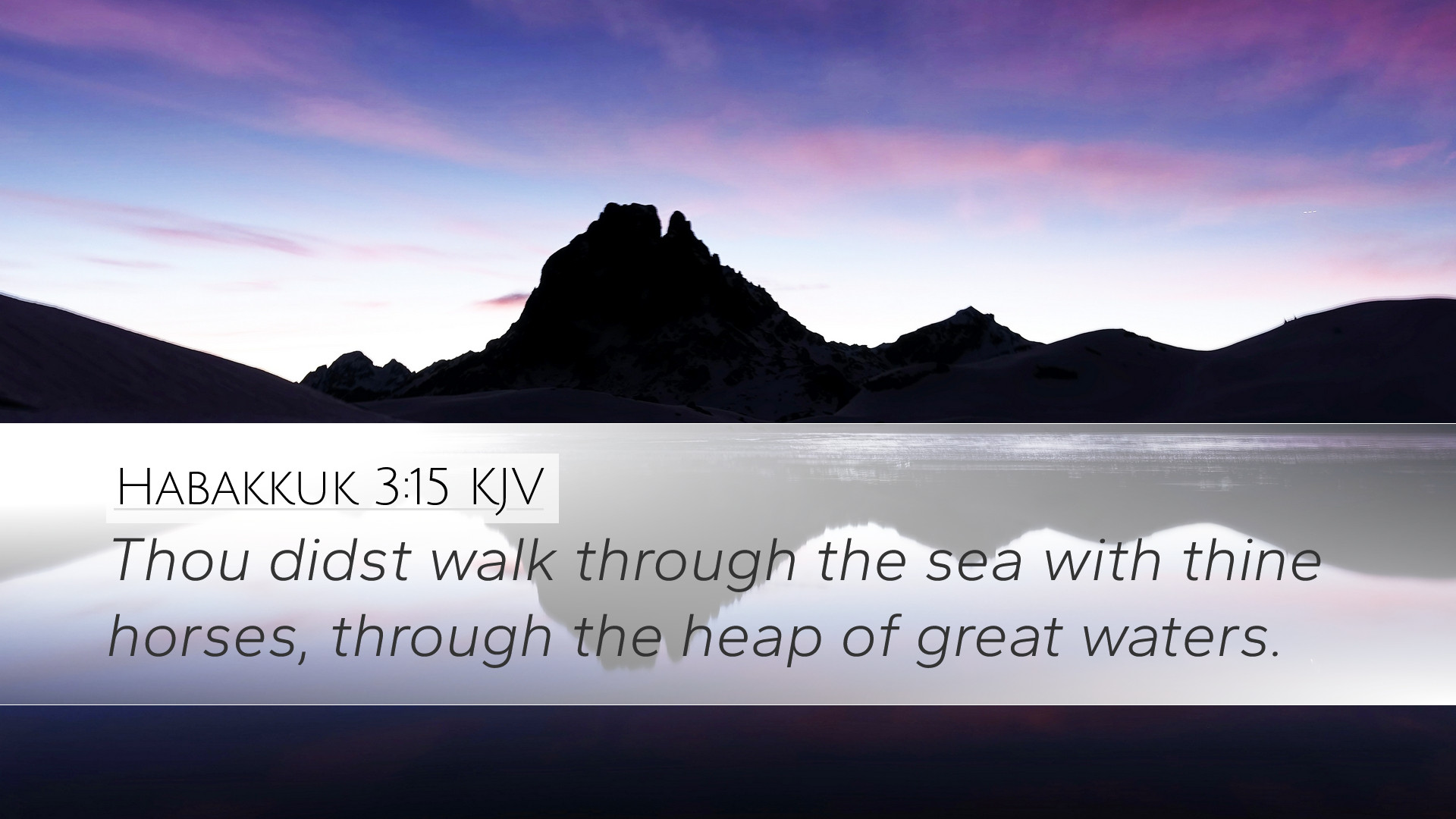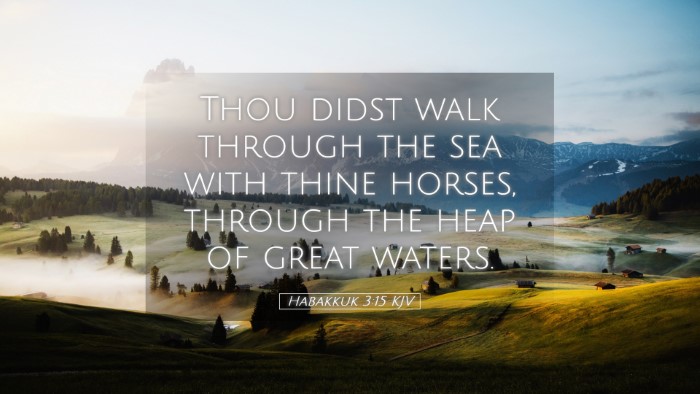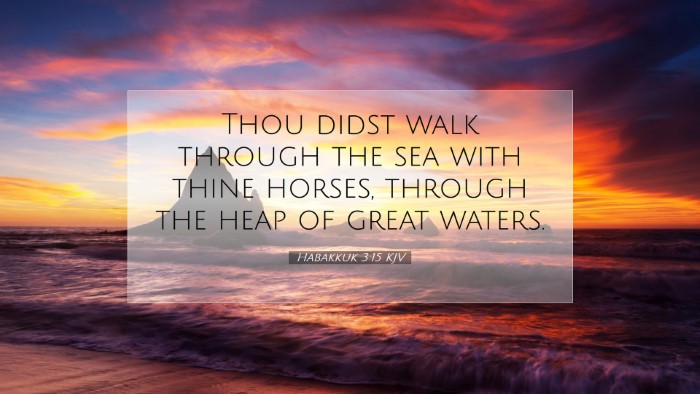Old Testament
Genesis Exodus Leviticus Numbers Deuteronomy Joshua Judges Ruth 1 Samuel 2 Samuel 1 Kings 2 Kings 1 Chronicles 2 Chronicles Ezra Nehemiah Esther Job Psalms Proverbs Ecclesiastes Song of Solomon Isaiah Jeremiah Lamentations Ezekiel Daniel Hosea Joel Amos Obadiah Jonah Micah Nahum Habakkuk Zephaniah Haggai Zechariah MalachiHabakkuk 3:15
Habakkuk 3:15 KJV
Thou didst walk through the sea with thine horses, through the heap of great waters.
Habakkuk 3:15 Bible Commentary
Commentary on Habakkuk 3:15
In Habakkuk 3:15, the prophet reflects upon the might of God in the face of His enemies, drawing upon vivid imagery to illustrate God’s power and the deliverance of His people. This verse is a part of a larger psalm of praise that serves both as a reminder of God’s past deeds and an affirmation of His future faithfulness.
Text of Habakkuk 3:15
“Thou didst walk through the sea with thine horses, through the heap of great waters.”
Theological Insights
This verse emphasizes God’s sovereignty over nature and His capability to deliver His people. The reference to walking through the sea alludes to the Exodus narrative where God parted the Red Sea, illustrating His miraculous power and providential care.
Historical Context
Habakkuk prophesied during a time of great turmoil for Israel as the Babylonians threatened their existence. The remembrance of God’s past acts of salvation serves to encourage both the prophet and the people to trust in the future deliverance. Matthew Henry notes that the miraculous crossing of the Red Sea is a prototype of God’s intervention and a source of hope for believers.
Interpretation of the Imagery
-
“Thou didst walk through the sea”:
Here, the image of God ‘walking’ through the sea indicates His power and authority over the chaotic waters. Albert Barnes highlights that this conjures a vision of triumph where God is not hindered by natural elements, demonstrating His ability to protect and provide for His people in dire circumstances.
-
“with thine horses”:
The mention of horses symbolizes strength and speed in ancient Hebrew literature. Adam Clarke observes that this denotes not only the military might of God but also His swift action in defense of His people, signifying a divine cavalry that charges against the enemy.
-
“through the heap of great waters”:
This phrase can be understood as a reference to the piled-up waters during the crossing of the Red Sea. It accentuates the magnitude of the miracle and the overwhelming nature of God’s deliverance from the enemy. In the reflection of Matthew Henry, this can also point to God’s ability to make a way in seemingly impossible situations.
Applications for Believers
This passage invites believers to trust in God’s mighty power and past faithfulness as a basis for present confidence. When faced with trials, remembering how God has provided and delivered in history can strengthen faith.
Encouragement in Trials
The historical context reveals a practical application: just as Habakkuk recalls God’s mighty works, believers are encouraged to meditate upon their own experiences of God’s provision. Albert Barnes asserts that the recollection of divine intervention not only builds faith but serves as a powerful reminder of God’s enduring presence in times of need.
God’s Sovereignty in Our Narratives
This verse serves as a powerful declaration of God’s sovereignty. Adam Clarke suggests that by acknowledging God’s sovereign acts, believers can cultivate a heart of gratitude and recognition of His ongoing work in their lives.
Conclusion
Habakkuk 3:15 encapsulates a profound truth of God’s involvement in the world and His unyielding fidelity to His people. The prophet's vibrant imagery not only calls to memory significant historical events but also encourages every believer to embrace God’s power in light of future difficulties. Reflecting on these divine attributes helps build resilience and faith within the community of believers as they anticipate God’s future interventions.


